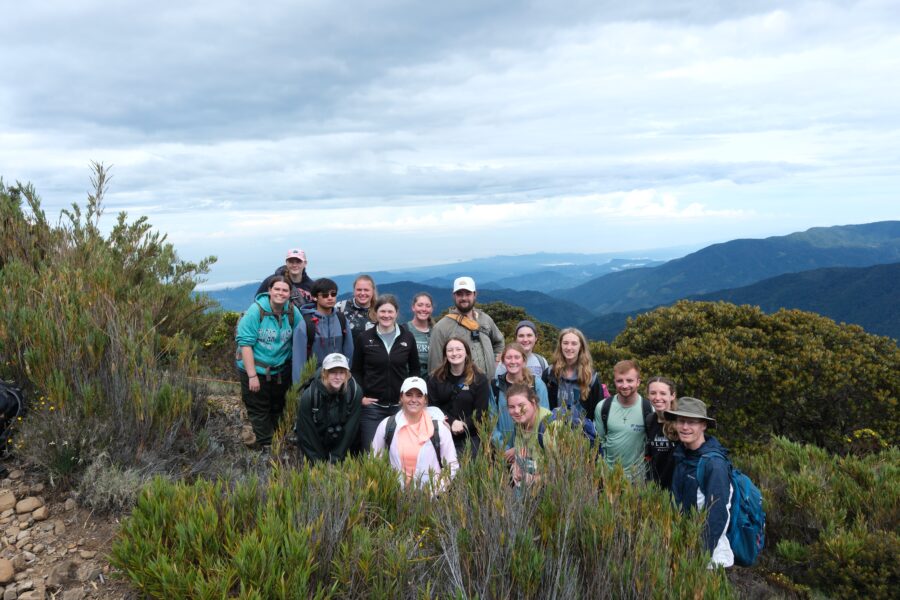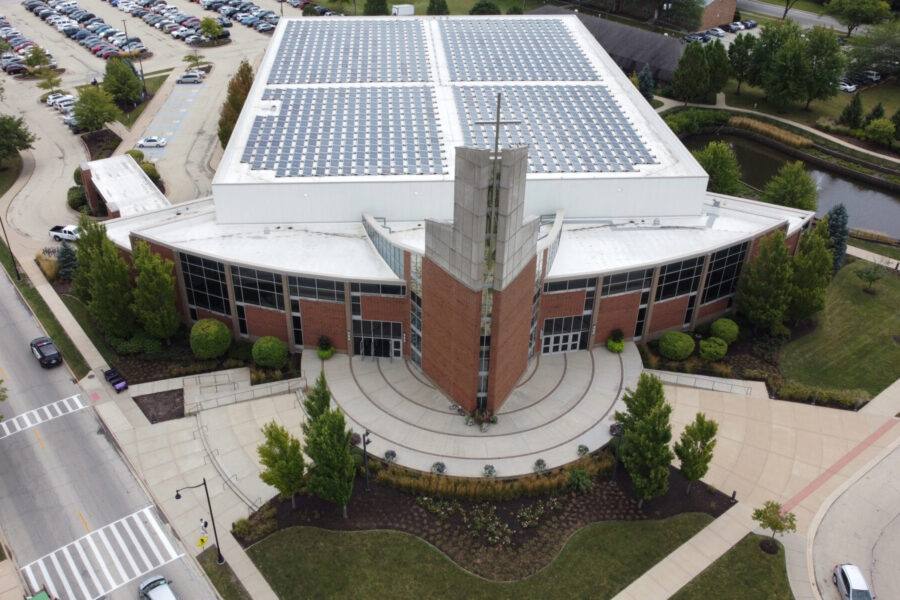
“We can talk about organisms and ecosystems in the classroom for hours,” explains Dr. Parry Kietzman, associate professor of biology and co-director of the Olivet Biological Sanctuary, “but there’s really no comparison to actually being present.”
Being present is exactly what 15 students experienced this past June as participants in the Olivet Nazarene University Department of Biological Sciences’ Tropical Field Ecology course. Co-taught by Dr. Kietzman and Dr. David Hoekman, also an associate professor of biology and co-director of the Olivet Biological Sanctuary, the course built on a series of seminars during the spring semester and culminated in a two-week field experience in Costa Rica.

Costa Rica is an ideal destination for a field studies course. With its high degree of biodiversity, the country allows students to visit several distinct ecosystems in a relatively short time. The group visited cloud forests, both Caribbean and Pacific coasts, an active volcano and tropical rainforests.
“We seldom spend more than a night or two in one location,” Dr. Kietzman explains.
Another stop included the Quetzal Educational Research Center, a research field station operated by Southern Nazarene University in montane forests on the bank of the Savegre River. As the team traveled, students developed their own projects and gathered data to address their research questions.
Rosalee Hough ’26, a biology major with a pre-med concentration, called the trip “an extraordinary opportunity.” The Tortuguero riverboat tour was a highlight for her.
“We saw three different species of monkeys, crocodiles, caimans and birds including toucans, macaws and herons,” she says.
For Elizabeth Kooyenga ’26, a zoology and biology double major, the trip was transformative.
“I have read books and watched documentaries about the rainforest and other ecosystems since I was a kid, but nothing compares to actually being there and experiencing it all firsthand,” she says.
“Field experiences like this,” Dr. Kietzman says, “are essential for giving students a deeper understanding of ecology as well as a richer appreciation for God’s creation and a desire to love and protect it. Besides the knowledge gained, students are shaped by joy and wonder at discovering the beauty of the different ecosystems visited.” She adds, “That’s something that beats a photo on a PowerPoint slide any day.”
The field course is offered to biology majors every third summer as part of a rotation that includes an African Field Ecology course and an Arctic Field Ecology course to Namibia and Iceland, respectively. The rotation means students have an opportunity for biology field courses every summer. For more information, contact Olivet’s Department of Biological Sciences.
Rosalee encourages other students to make the trip.
“Every bead of sweat and every step hiked was worth it,” she says.
Learn more about the Biological Sciences Department at Olivet Nazarene University by visiting olivet.edu.





